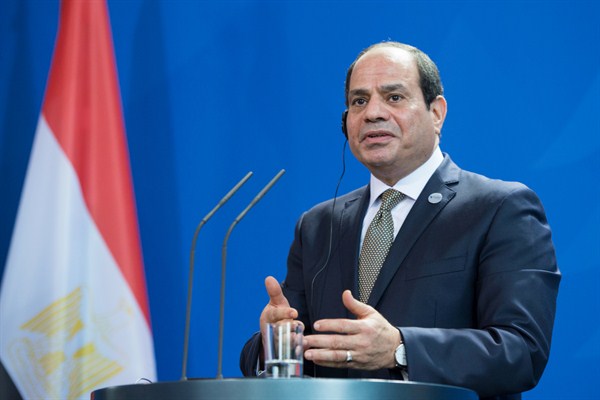President Abdel-Fattah el-Sisi rules with brutal authority, but Egypt's political and economic future look anything but secure.
CAIRO—To the many Egyptians who took to the streets in January 2011 to bring down former President Hosni Mubarak, Cairo is full of reminders of the country's post-revolution failures. Tahrir Square is once again a bleak traffic-laden roundabout; just next to it, the Egyptian Museum is associated with torture by the military after activists were detained and interrogated there following a protest in March 2011. Nearby, the downtown area of Maspero is notorious for the massacre of Coptic Christians. To the east, Rabaa al-Adaweya Square symbolizes the violent repression of those, many of them from the Muslim Brotherhood, who opposed the military coup that brought the current president, Abdel-Fattah el-Sisi, to power in July 2013.
Keep reading for free!
Get instant access to the rest of this article by submitting your email address below. You'll also get access to three articles of your choice each month and our free newsletter:
Or, Subscribe now to get full access.
Already a subscriber? Log in here .
What you’ll get with an All-Access subscription to World Politics Review:
A WPR subscription is like no other resource — it’s like having a personal curator and expert analyst of global affairs news. Subscribe now, and you’ll get:
- Immediate and instant access to the full searchable library of tens of thousands of articles.
- Daily articles with original analysis, written by leading topic experts, delivered to you every weekday.
- Regular in-depth articles with deep dives into important issues and countries.
- The Daily Review email, with our take on the day’s most important news, the latest WPR analysis, what’s on our radar, and more.
- The Weekly Review email, with quick summaries of the week’s most important coverage, and what’s to come.
- Completely ad-free reading.
And all of this is available to you when you subscribe today.

